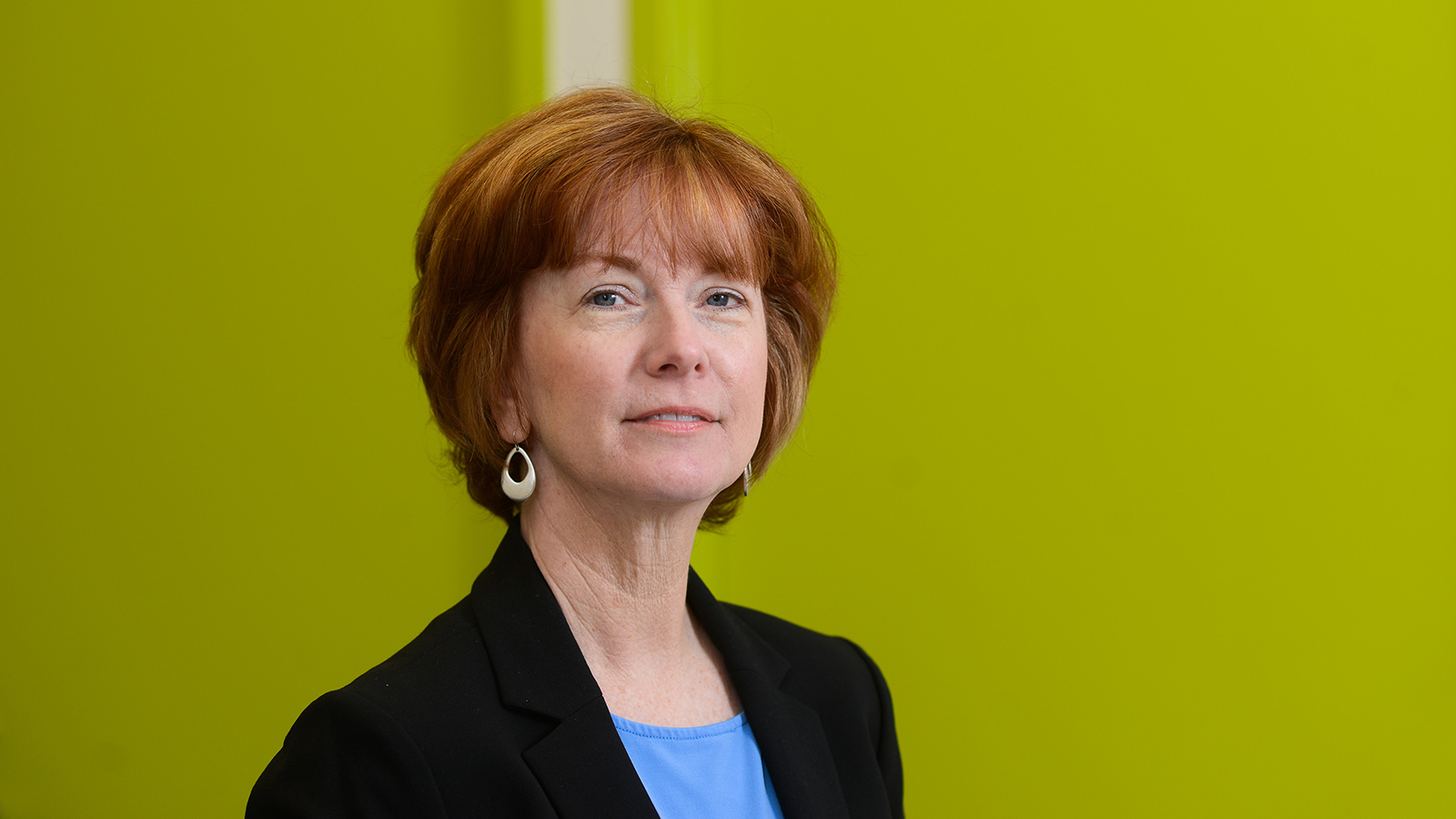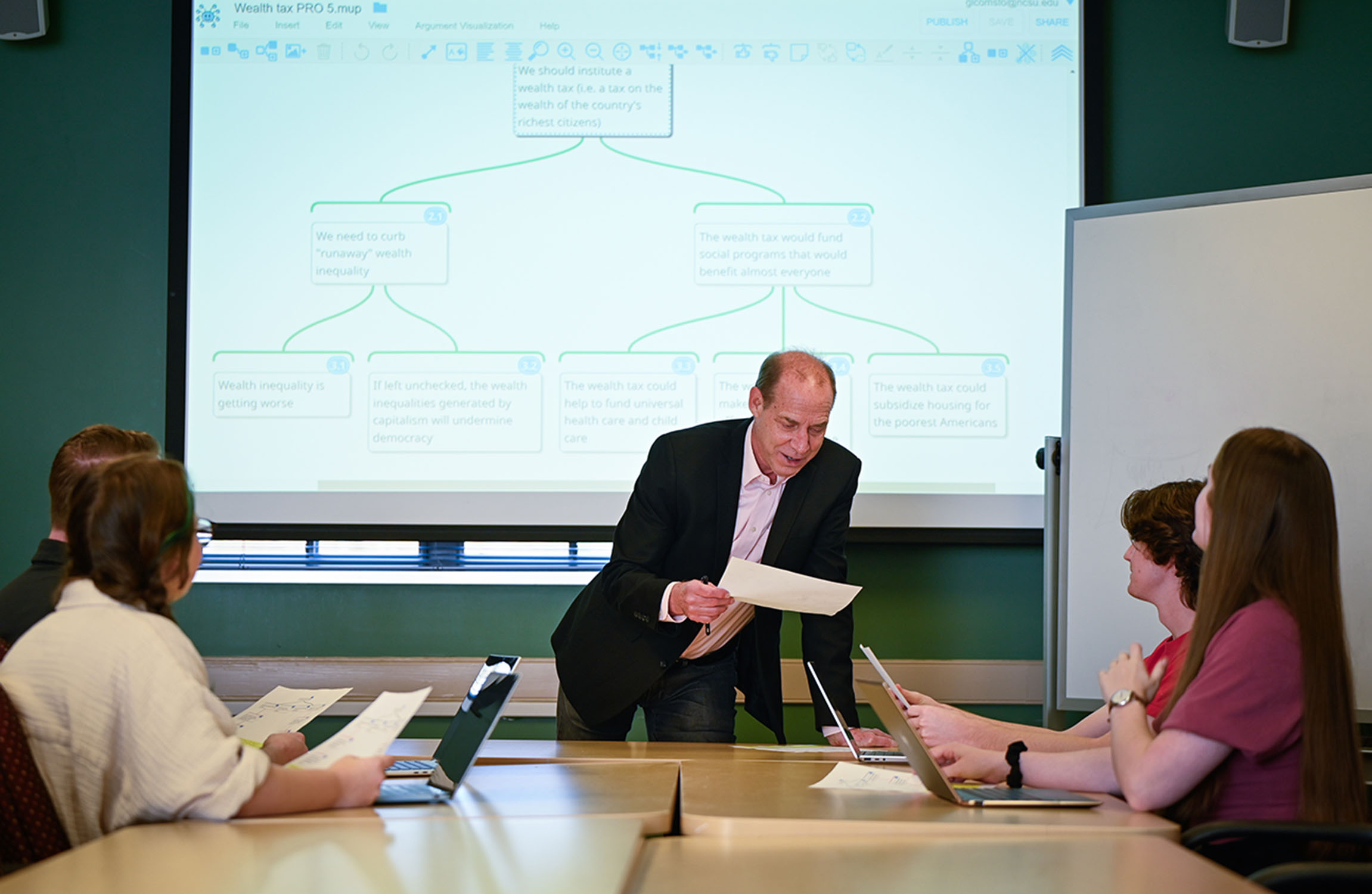NC State Students Report Food, Housing Insecurity

Of the thousands of students who pass through the Brickyard every day, it’s a sure bet that some of them are hungry — but not with the kind of hunger that comes from skimping on breakfast. A new survey reveals that some members of the Wolfpack are experiencing food insecurity: the lack of reliable access to a sufficient quantity of affordable, nutritious food.
The survey also found that some NC State students are experiencing bouts of homelessness while balancing jobs, classes, clubs and other activities.
To better understand the extent of food and housing insecurity on campus, a group of NC State faculty and staff, along with national experts and local community leaders, recently conducted a student survey and a review of support programs and services offered at NC State and on campuses across the country. The survey and review were intended to answer some tough questions:
- How many NC State students are struggling to find affordable food and housing?
- What resources are available for these students as they work toward their degrees?
- What can NC State do to better support the basic needs of the most vulnerable people in the campus community?
“The heart of this project is focused on student success,” says Mary Haskett, a professor of psychology and co-chair of a steering committee formed to study and address these issues. “Food insecurity and homelessness are true barriers to academic success. Studies have shown that students who struggle with these issues are at a very high risk for not being able to complete their degrees, and we want to understand the extent to which our students face these challenges and then how we can best help them succeed at NC State and beyond.”
The survey, sent to 7,000 NC State students last October, found that 14 percent of students had experienced low or very low food security within the prior month. The prevalence of student homelessness within the prior 30 days was 3.5 percent, and 9.6 percent of respondents reported experiencing homelessness over the prior year.
The most frequently reported forms of homelessness were temporarily staying with others and sleeping outdoors. Nearly a quarter of students who had experienced homelessness in the prior year also reported having been food insecure in the prior 30 days.
Nationwide Concerns
On other campuses, definitions of housing insecurity and homelessness differ, as do reported rates. Estimates of food insecurity over the prior year range from 14 percent at a university in Alabama to almost 60 percent at a university in Oregon. A large study of campuses in the California State University system indicated that 10.9 percent of students had been homeless in the previous 12 months.
“Our experts are using their skills to address real-world problems and solutions — in this case, very close to home,” says Jeff Braden, dean of the College of Humanities and Social Sciences, who served as an adviser to the steering committee. “NC State is one of the first universities nationally to survey its student population on food and housing security. This survey data helps us gain a greater understanding of our student population and ultimately can help us better support students for long-term success.”
The committee’s report includes an evaluation of programs specifically developed to address food and housing security. NC State offers a variety of support services for students, including Feed the Pack, an on-campus food pantry; TRIO, a national program that provides academic, personal and career support for under-resourced undergraduate students; financial aid; and on-campus emergency housing.
Difficult Situations
Alumna Kalysha Clark, a first-generation college student, knows firsthand how hard it can be to go to school while managing financial insecurity. When Clark came to NC State, she was receiving federal assistance from Medicaid and the Supplemental Nutrition Assistance Program.
“Navigating the financial aid process, plus trying to budget for my meals and my rent, all while going to school was very challenging,” Clark says. “But I had a great support system both at NC State and back home.”
Clark hit an unexpected rough patch when she was removed from SNAP in error, depriving her of a major source of food. Fortunately, she had enrolled in NC State’s TRIO Student Support Services Program, which currently serves about 300 students. TRIO coaches helped Clark navigate the system and recover her benefits, and they helped her find other resources on campus to meet her needs.
“Joining TRIO was the best decision I made while in college,” Clark says. “The staff helped me maneuver through some difficult situations. With their support, I was able to fully pursue my love of science and graduate on time and with honors.”
After earning a degree in zoology, Clark served with AmeriCorps for 10 months. Then she returned to NC State to complete a master’s degree in fisheries, wildlife and conservation biology, and now teaches high school science in Wake County.
“College is hard in the first place, regardless of where you come from or what you have or don’t have,” Clark says. “But education breaks the cycle of poverty. I’m completely off government assistance and recently purchased a home. And I’m doing what I love and encouraging other kids to do the same. I couldn’t have done it without the help I received at State.”
Services and Solutions
“NC State works hard to make sure our students have what they need to achieve their goals, including food and housing,” says Mike Mullen, vice chancellor and dean for academic and student affairs and an adviser to the steering committee. “We’re committed to solving this problem, and we’re looking at ways we can improve what we have and potentially add new services to ensure students don’t fall through the cracks.”
“Several of the programs we looked at on a national level are already being implemented in some form here at NC State,” says Haskett, the committee co-chair, “but our data indicate that those programs are not sufficient to address the identified needs. We believe that the best approach to reducing food insecurity and homelessness among our students is to expand and coordinate what we’re already offering, consider additional resources and establish a highly visible central hub, like a ‘wolf den,’ where comprehensive services are coordinated and easily accessible to all students. That’s what we’re working toward.”
More information on NC State’s programs and services addressing food and housing insecurity is available online.
This article originally appeared in NC State’s Bulletin.
- Categories:


